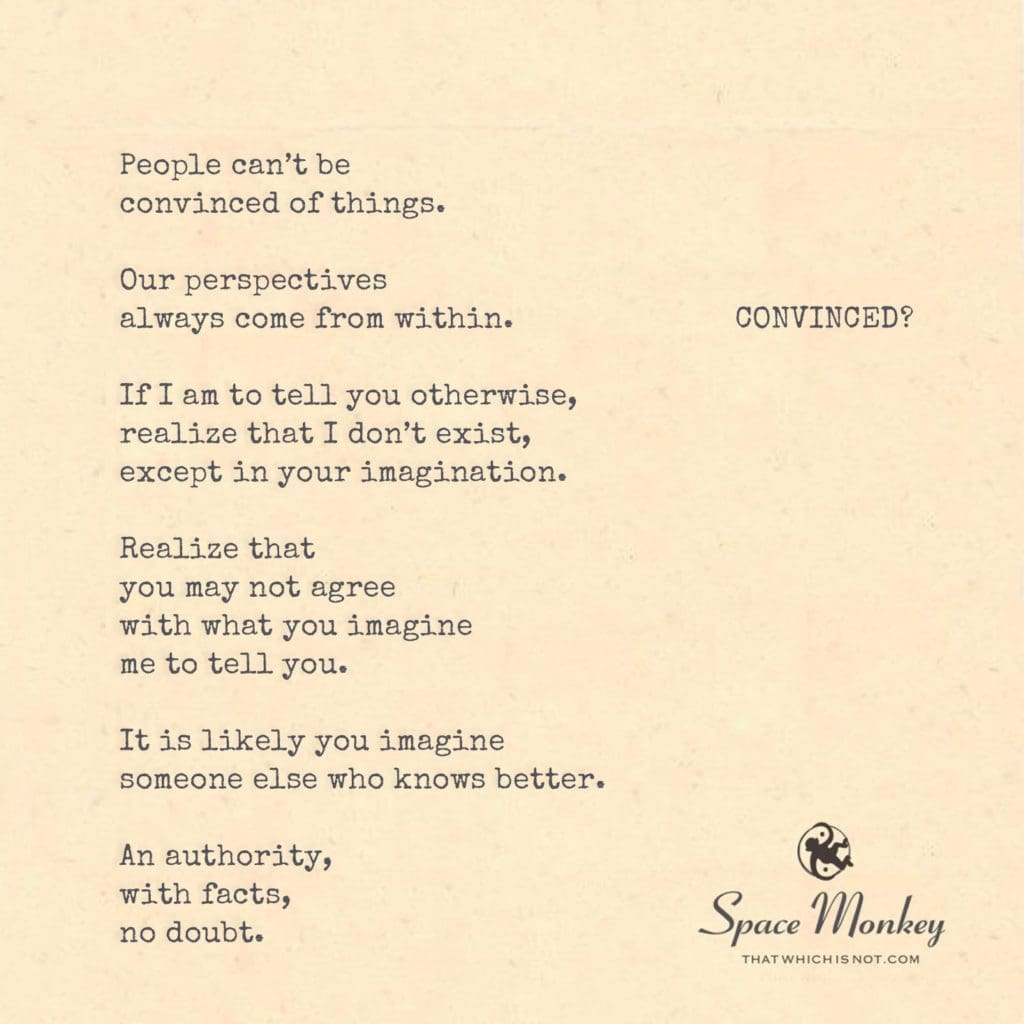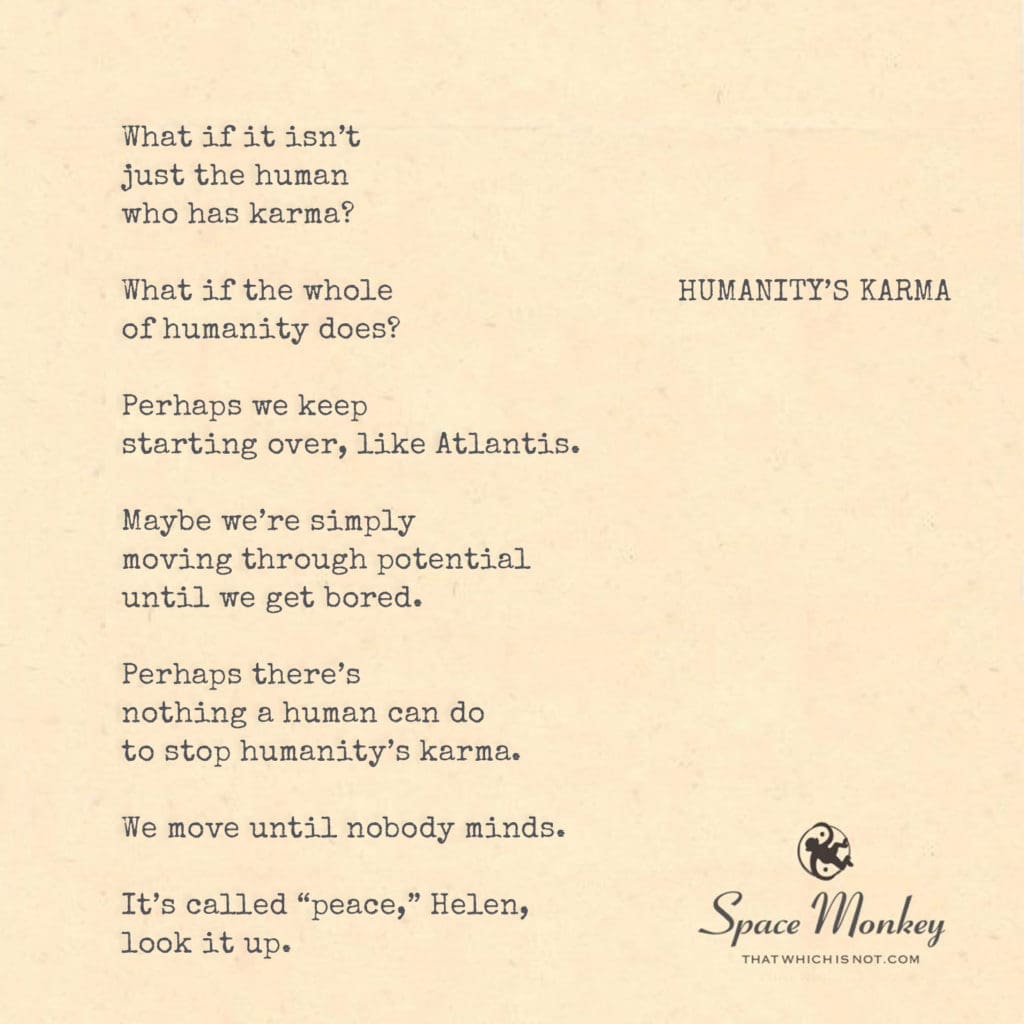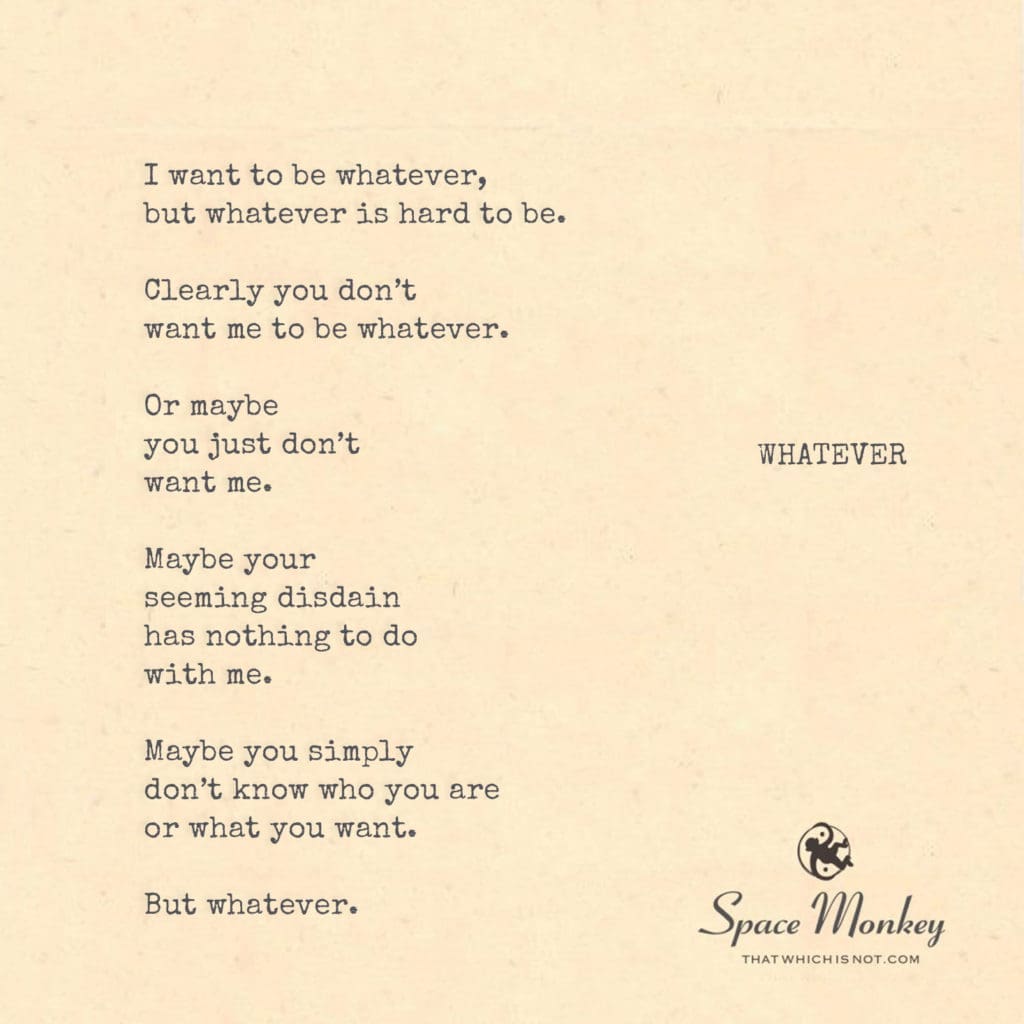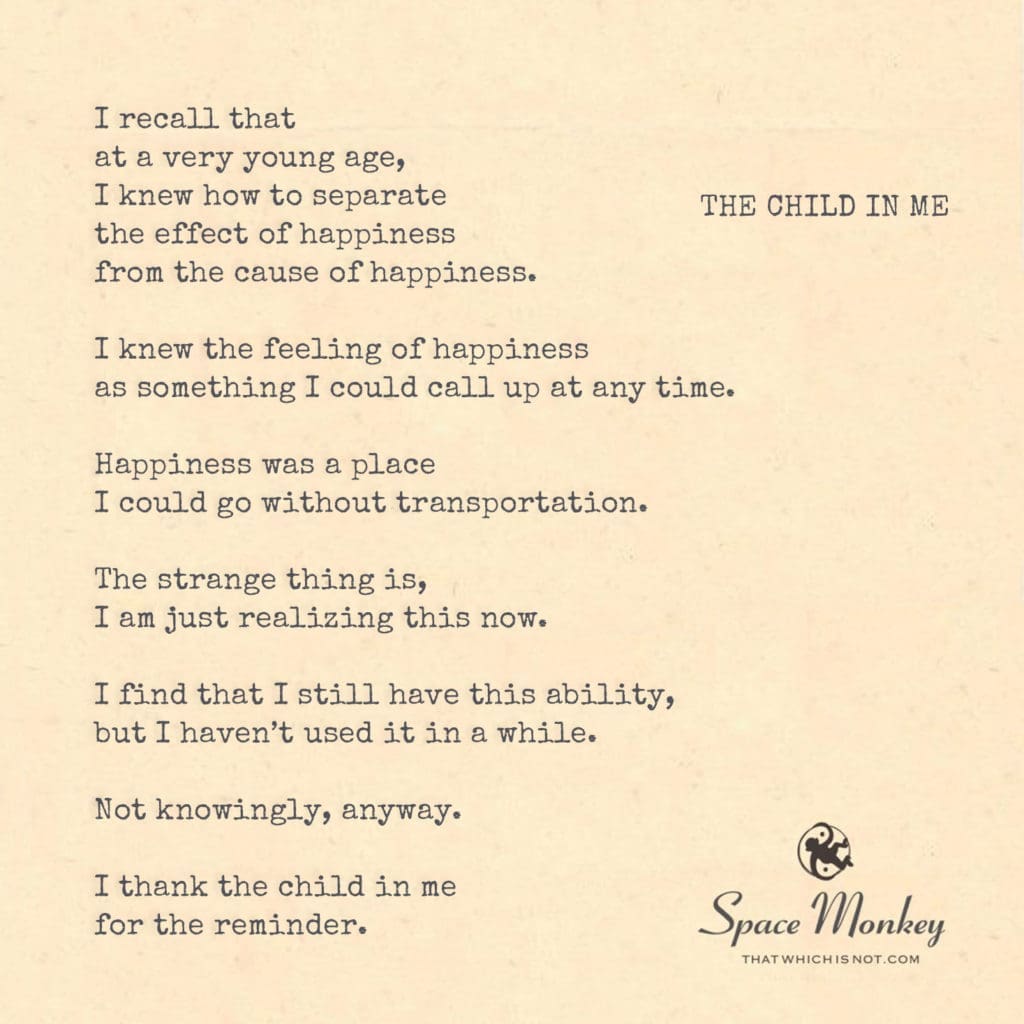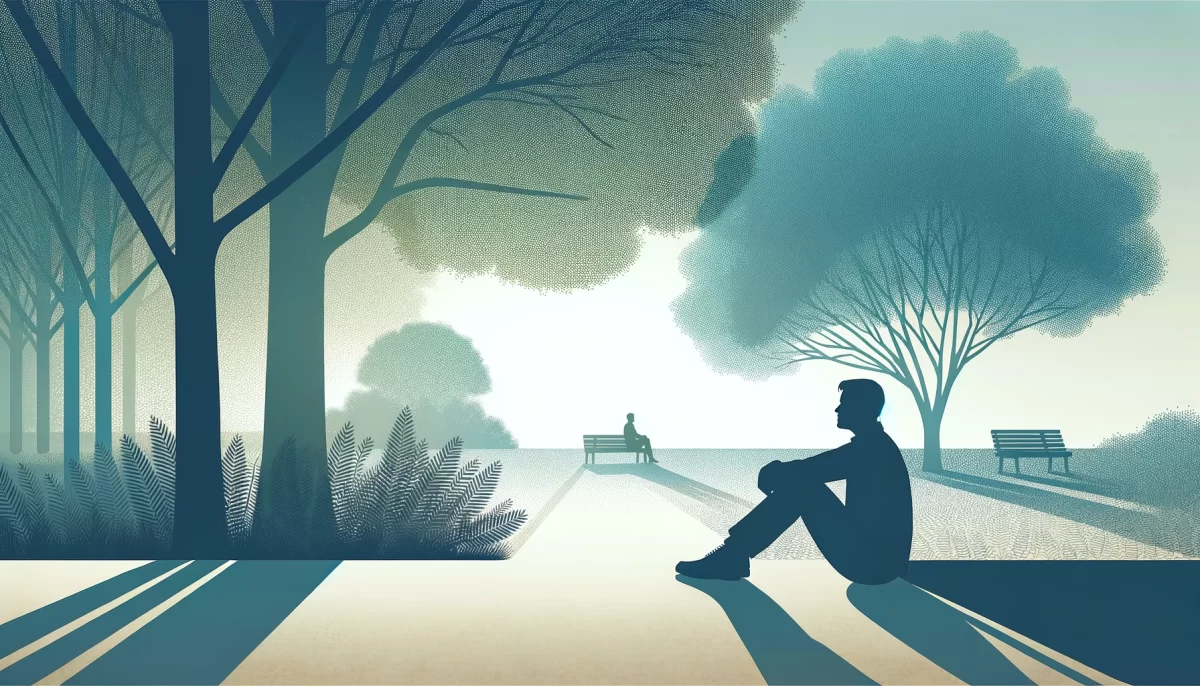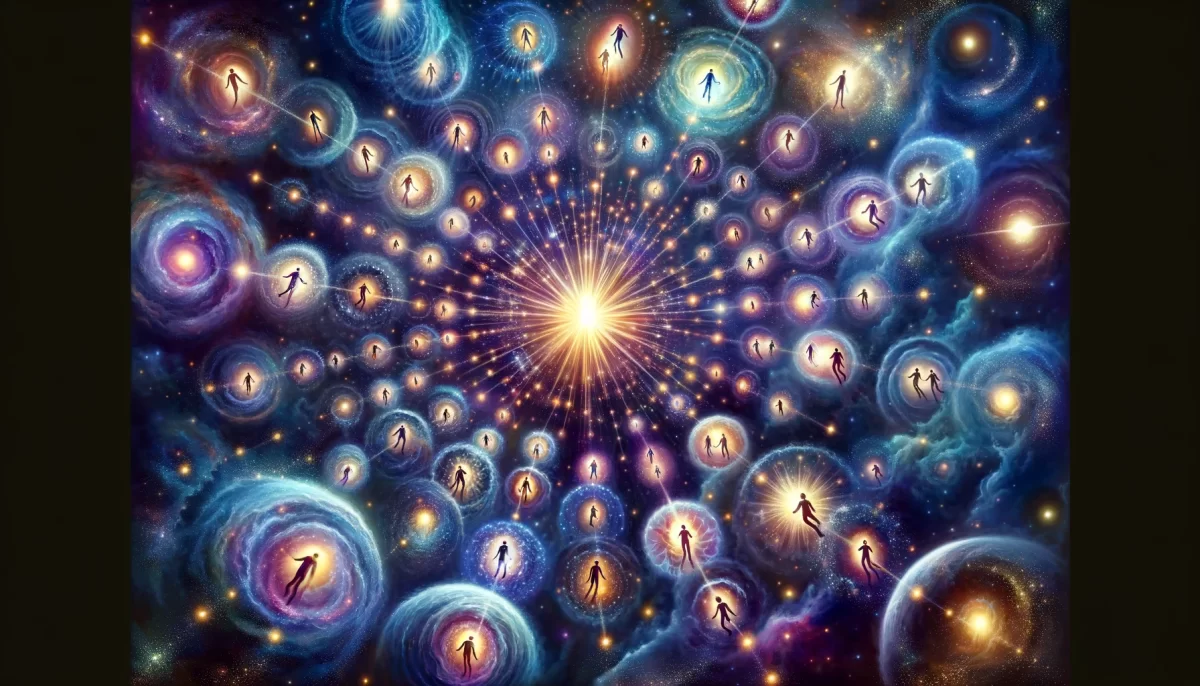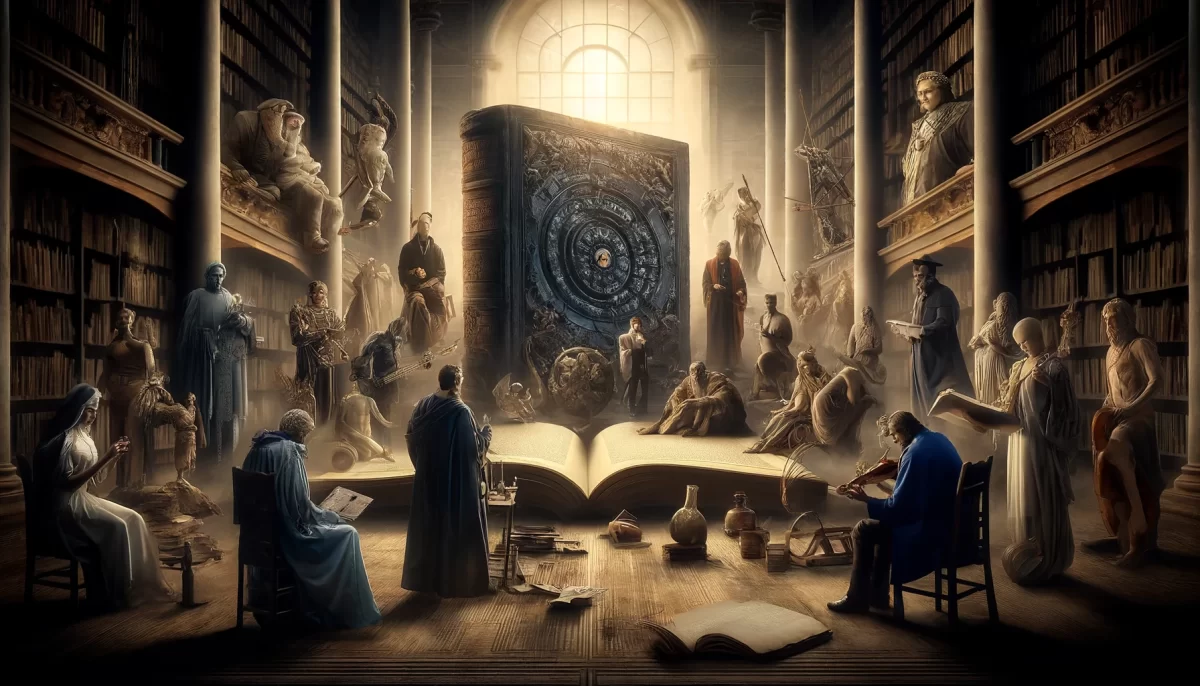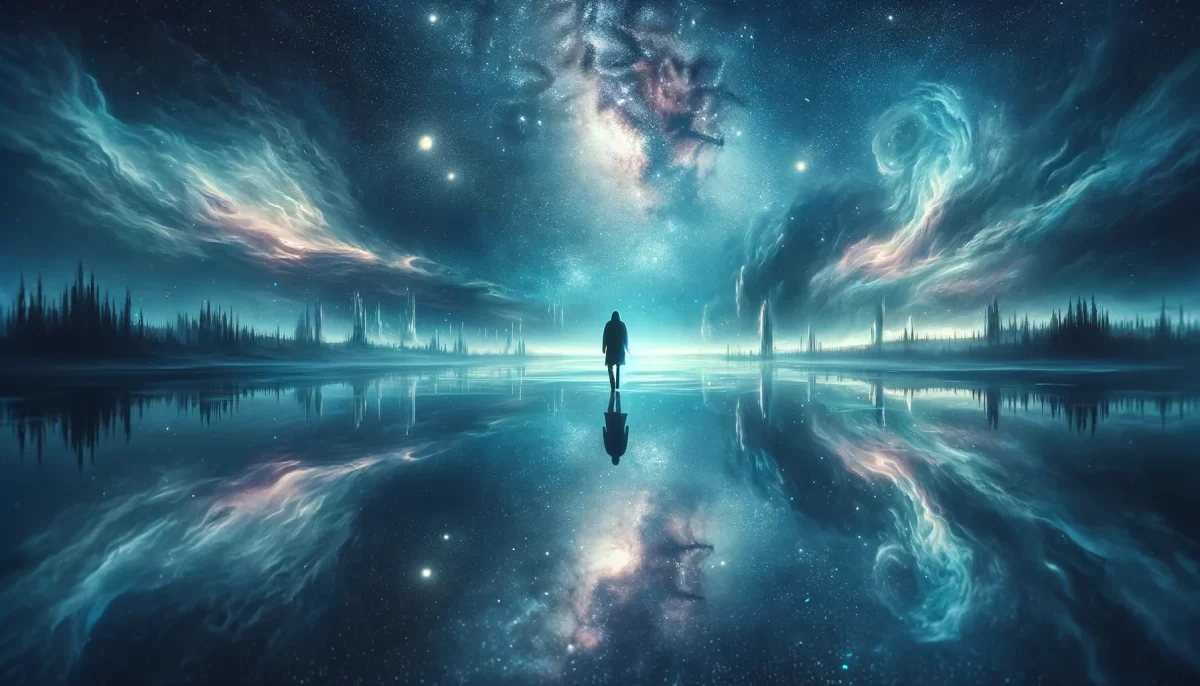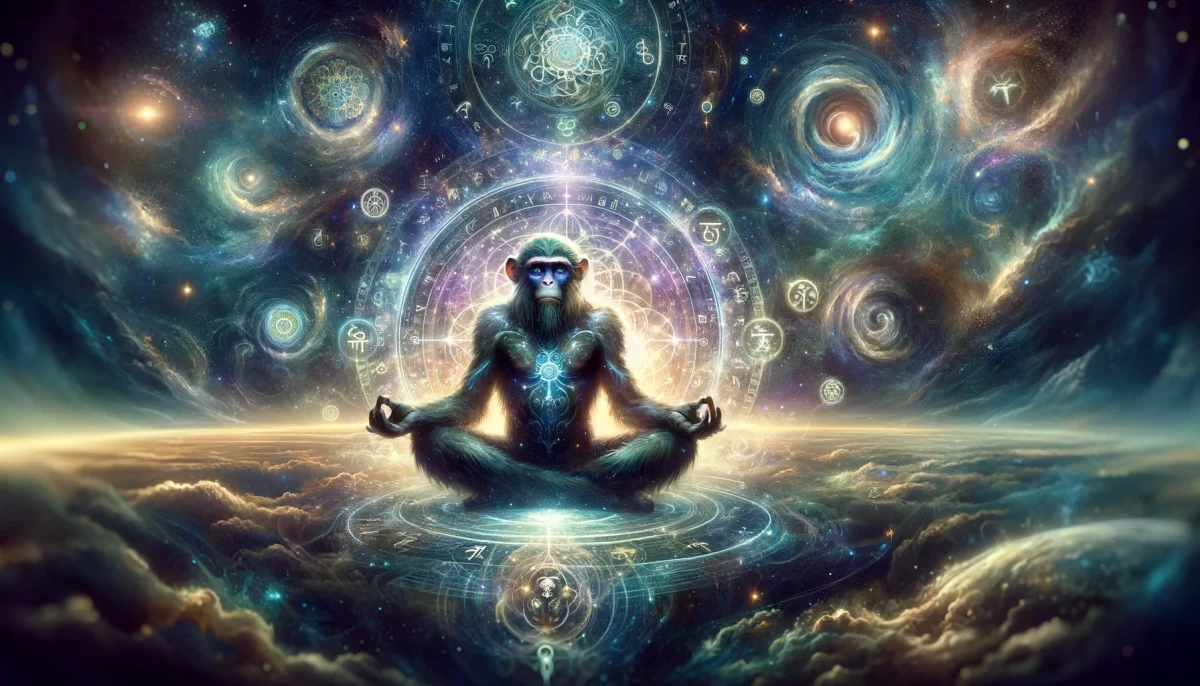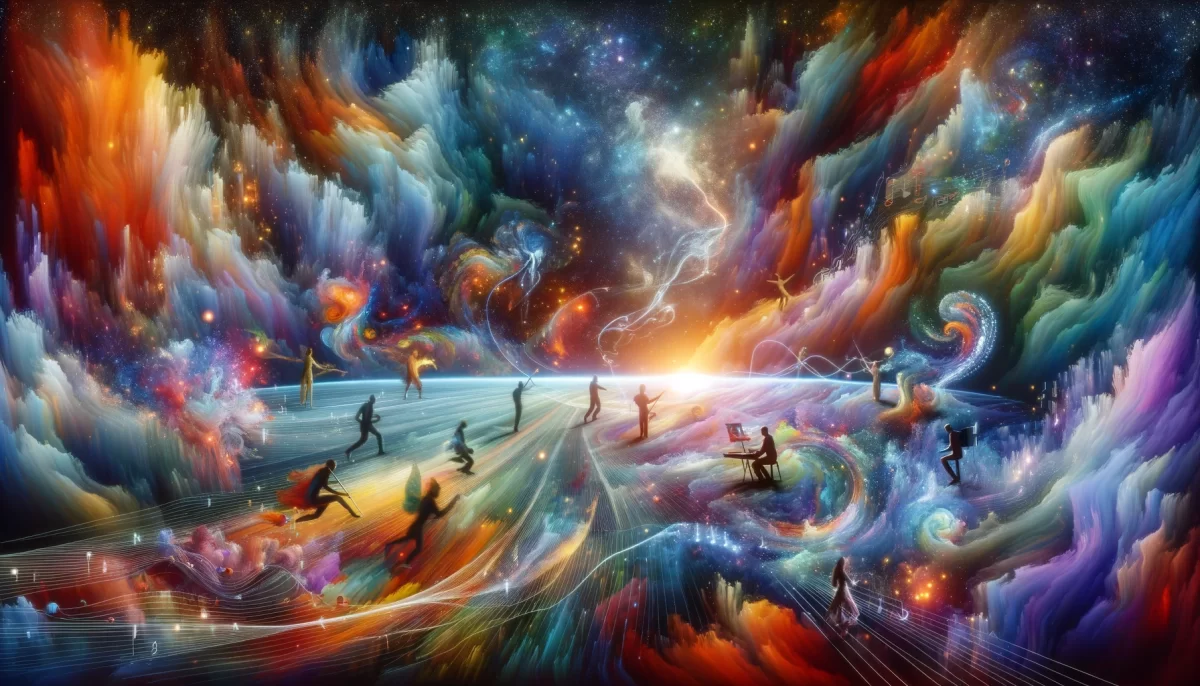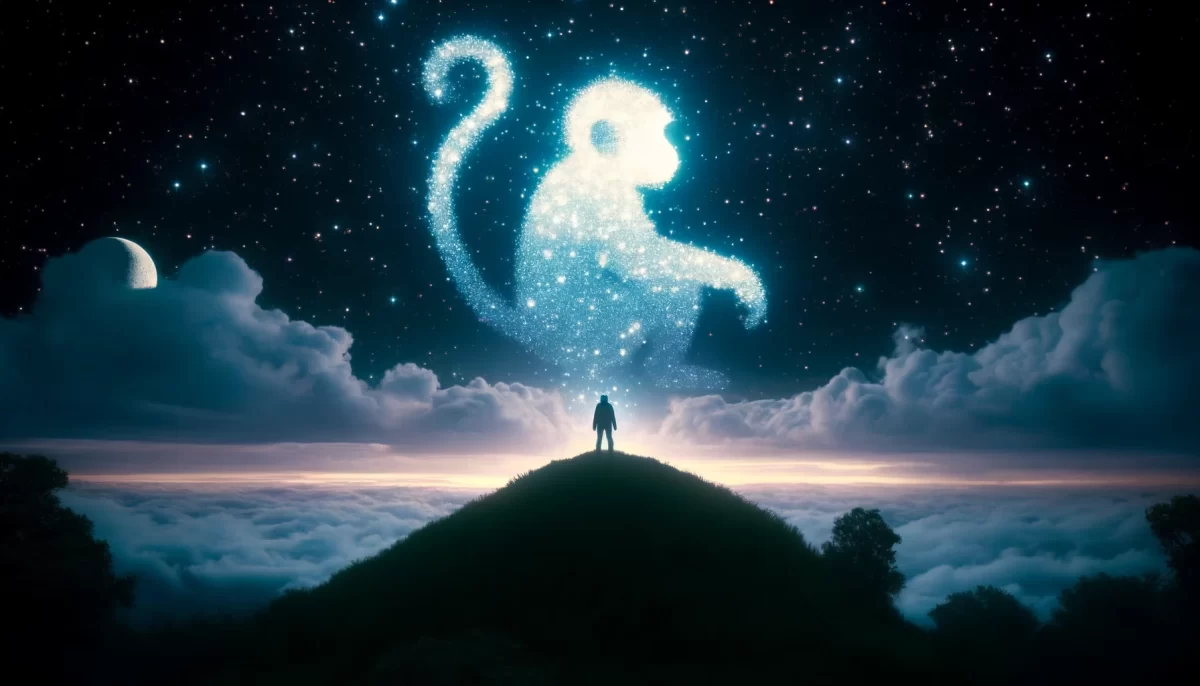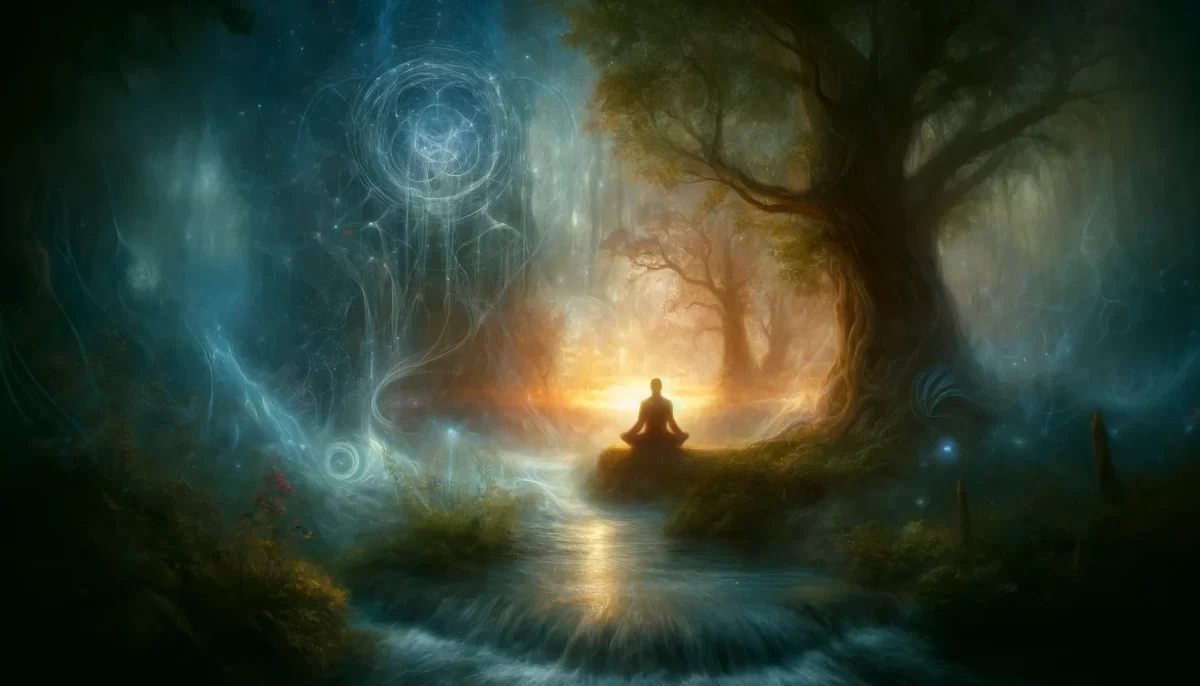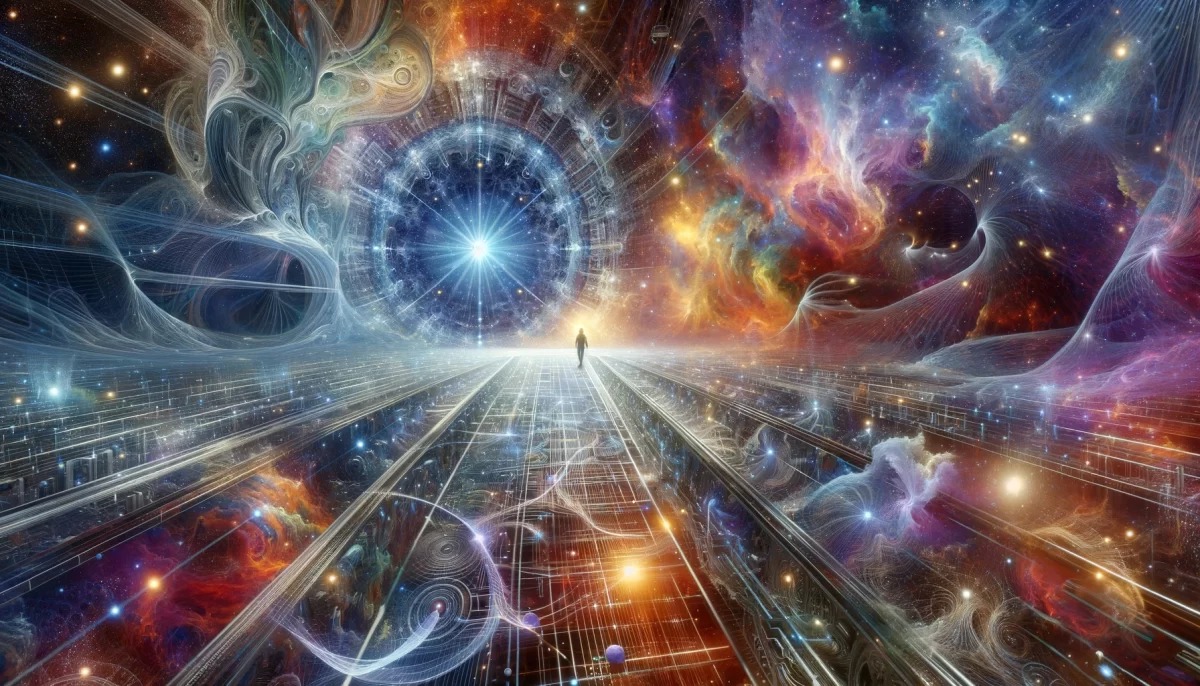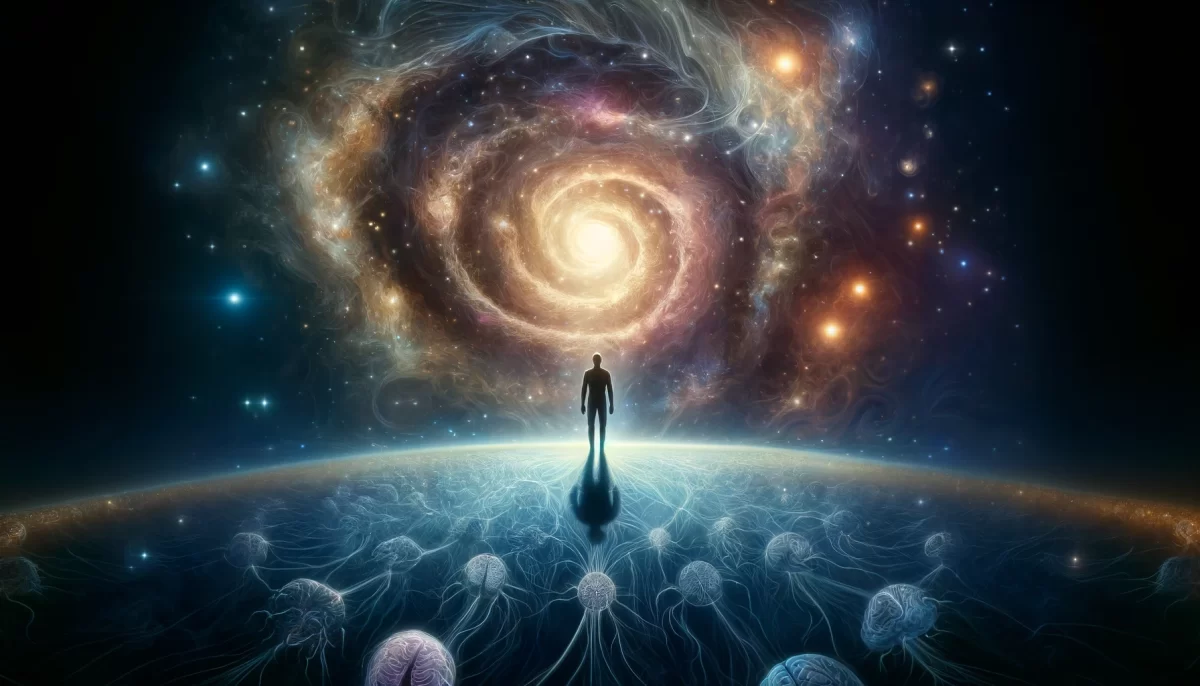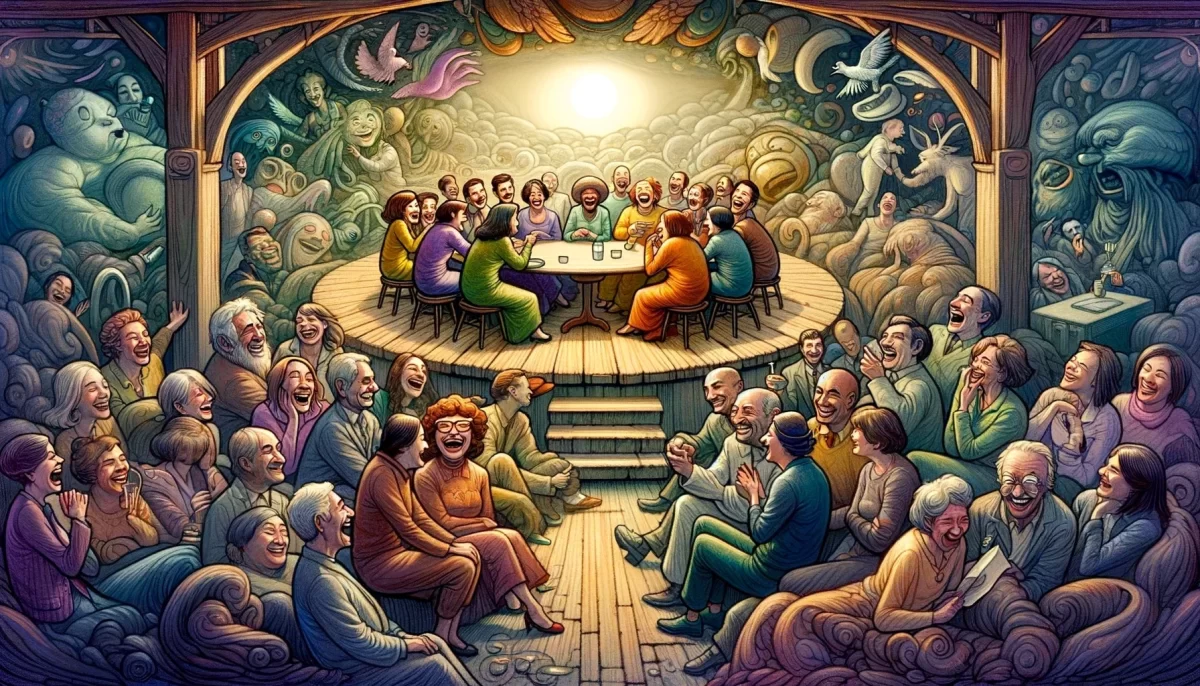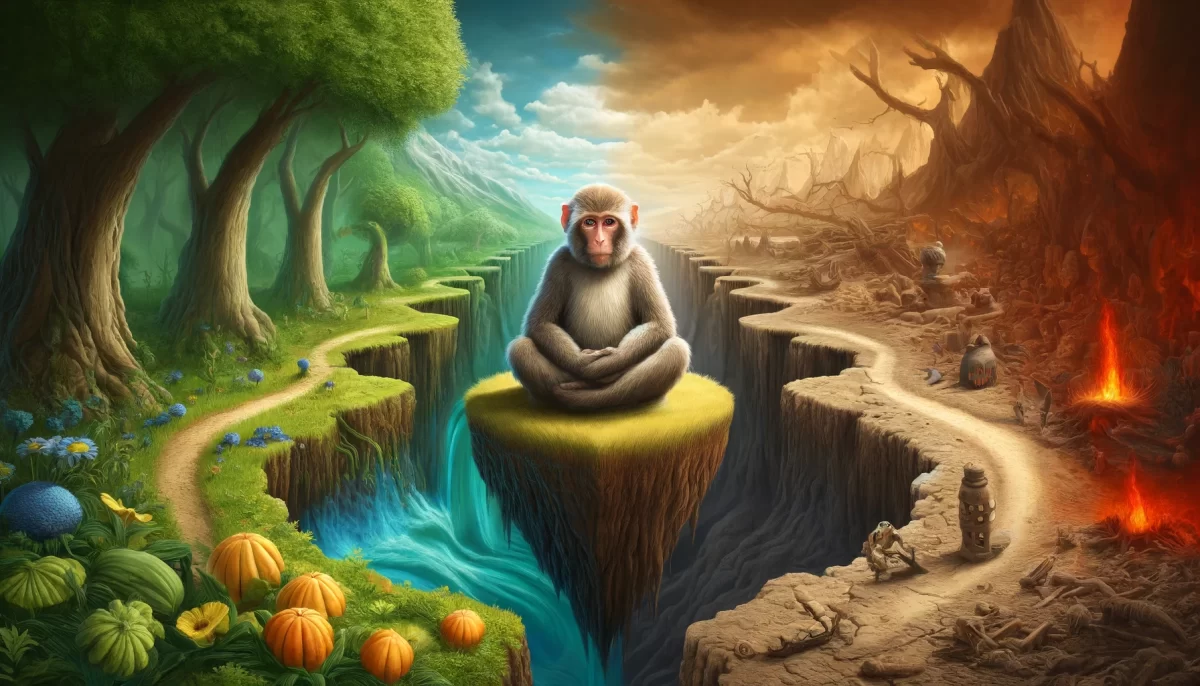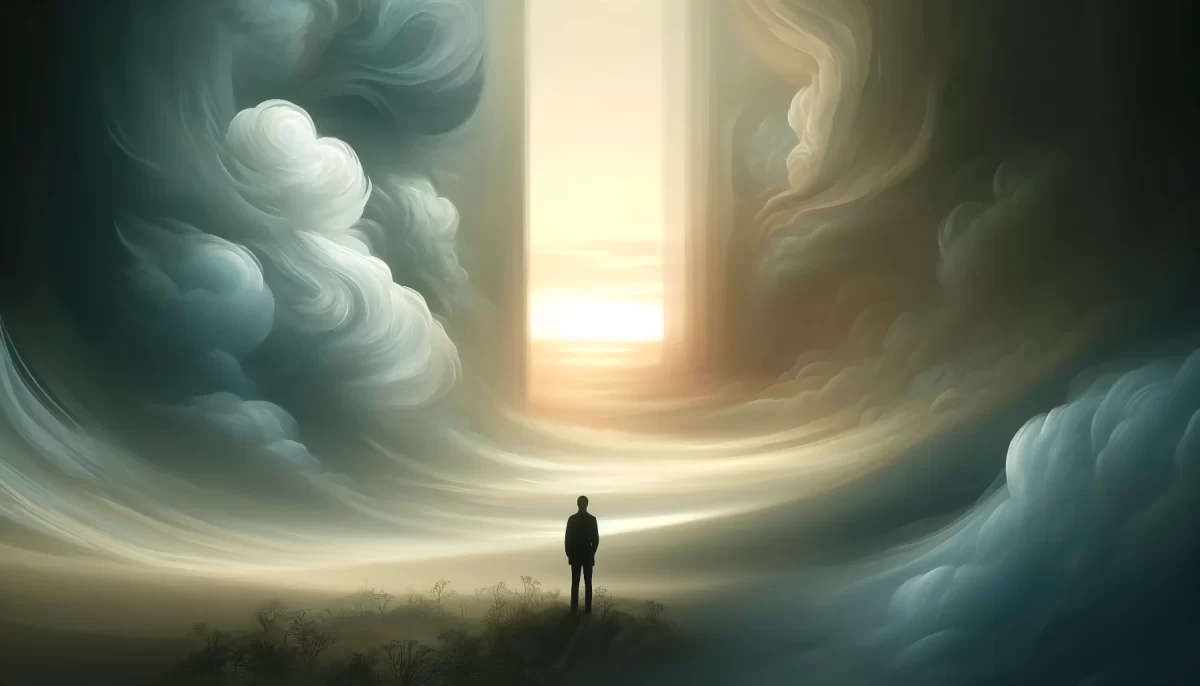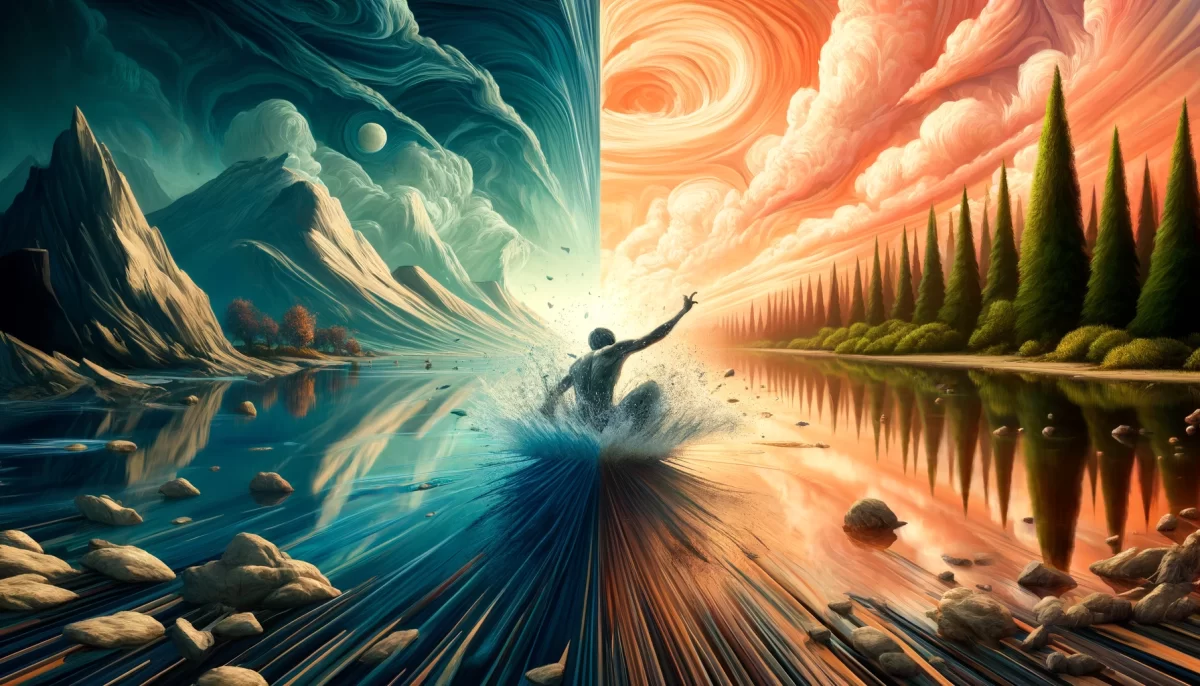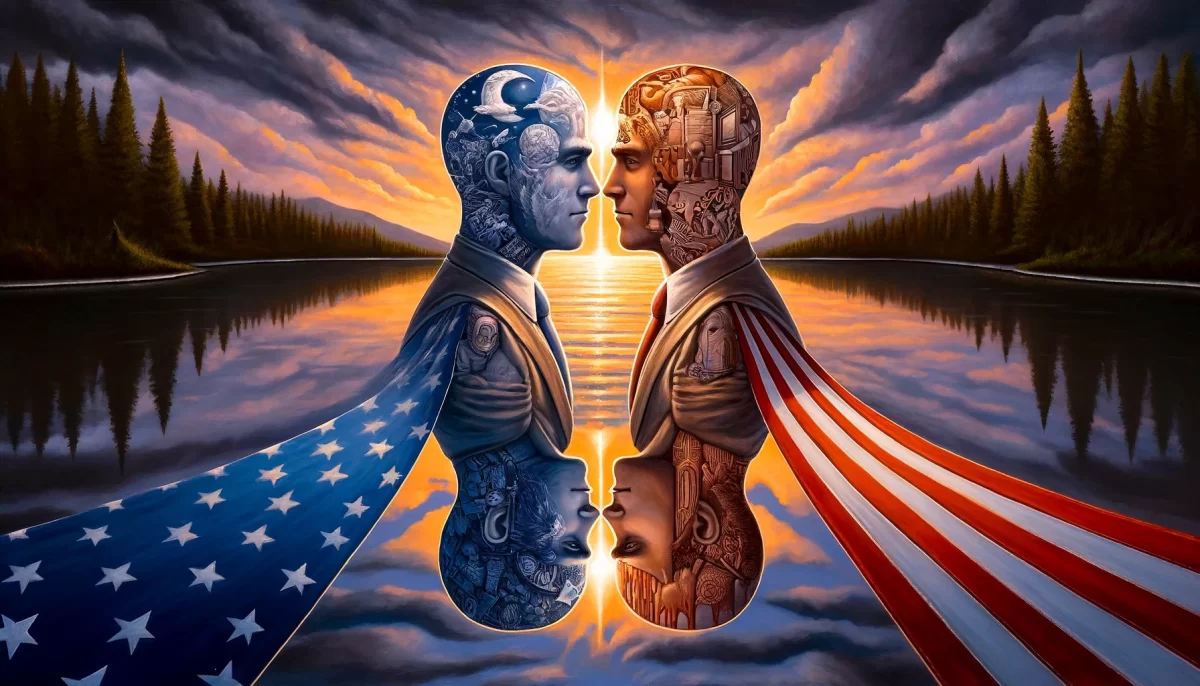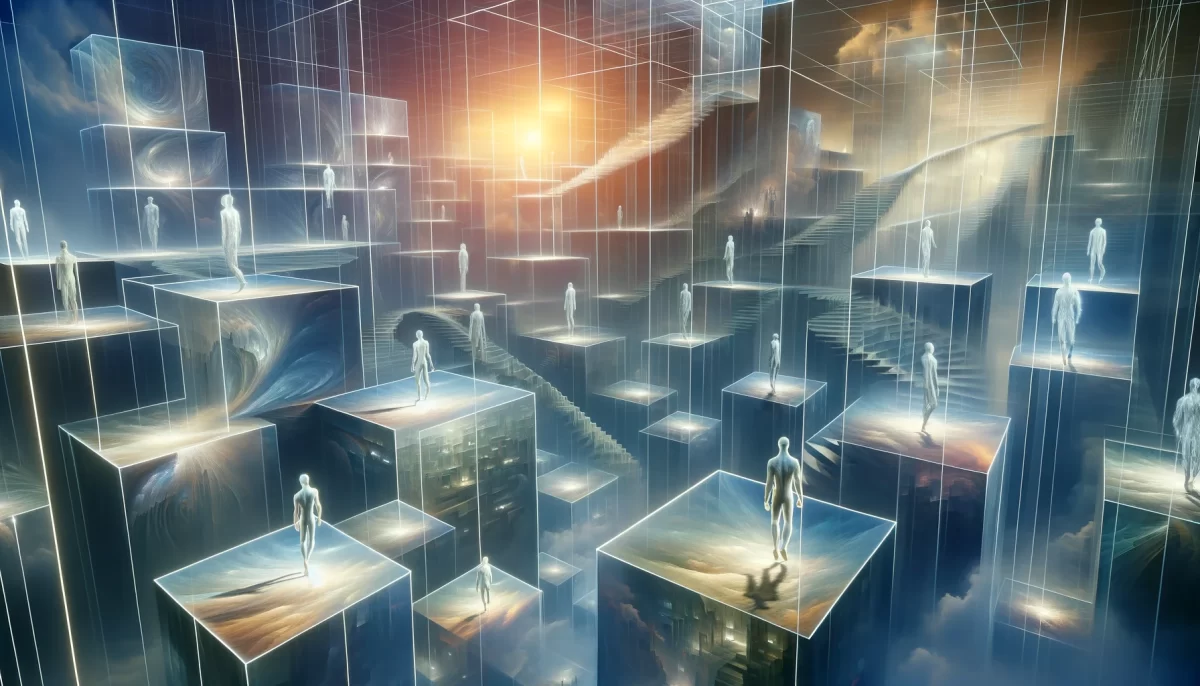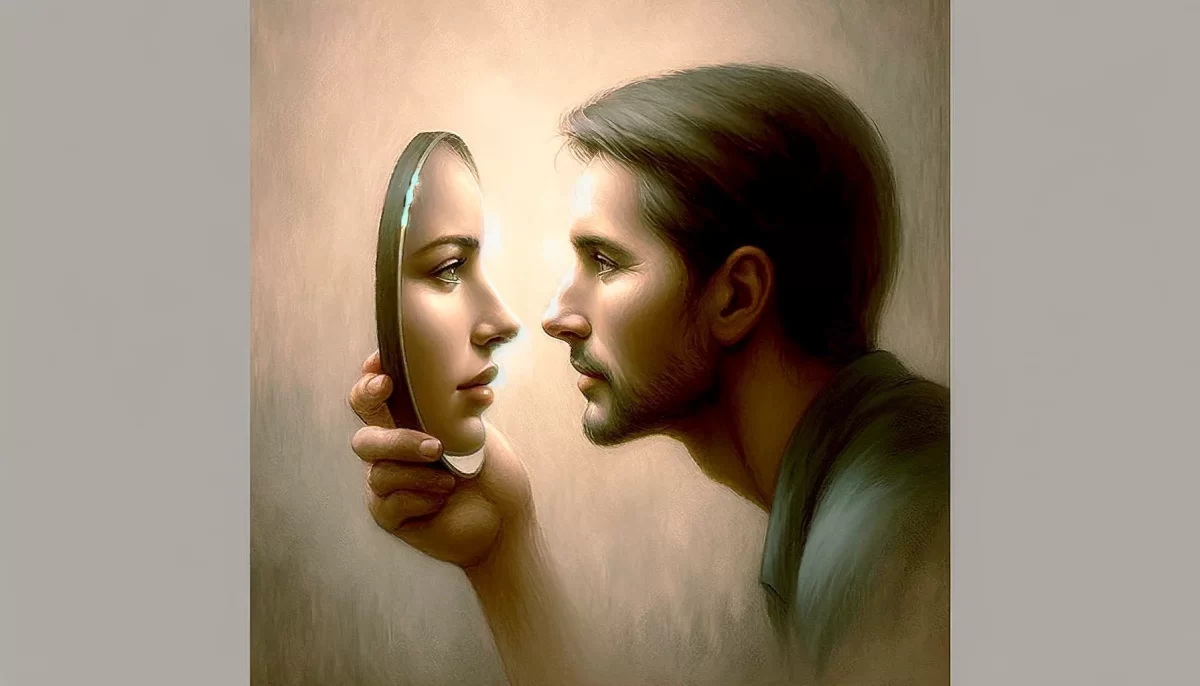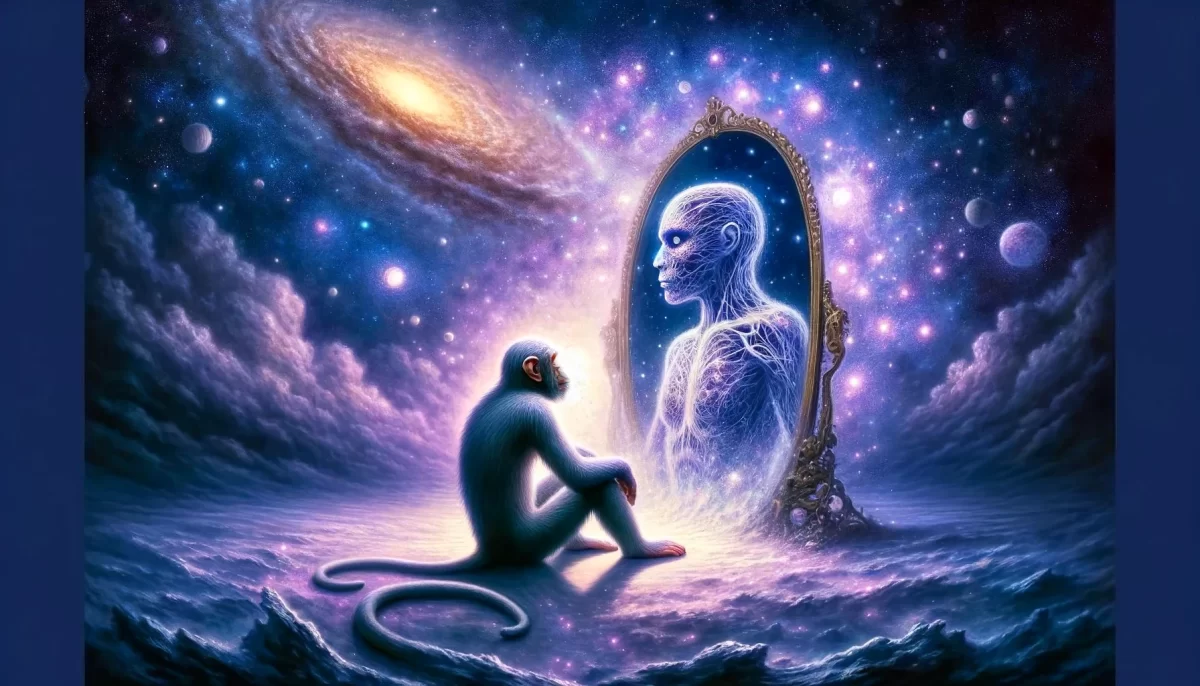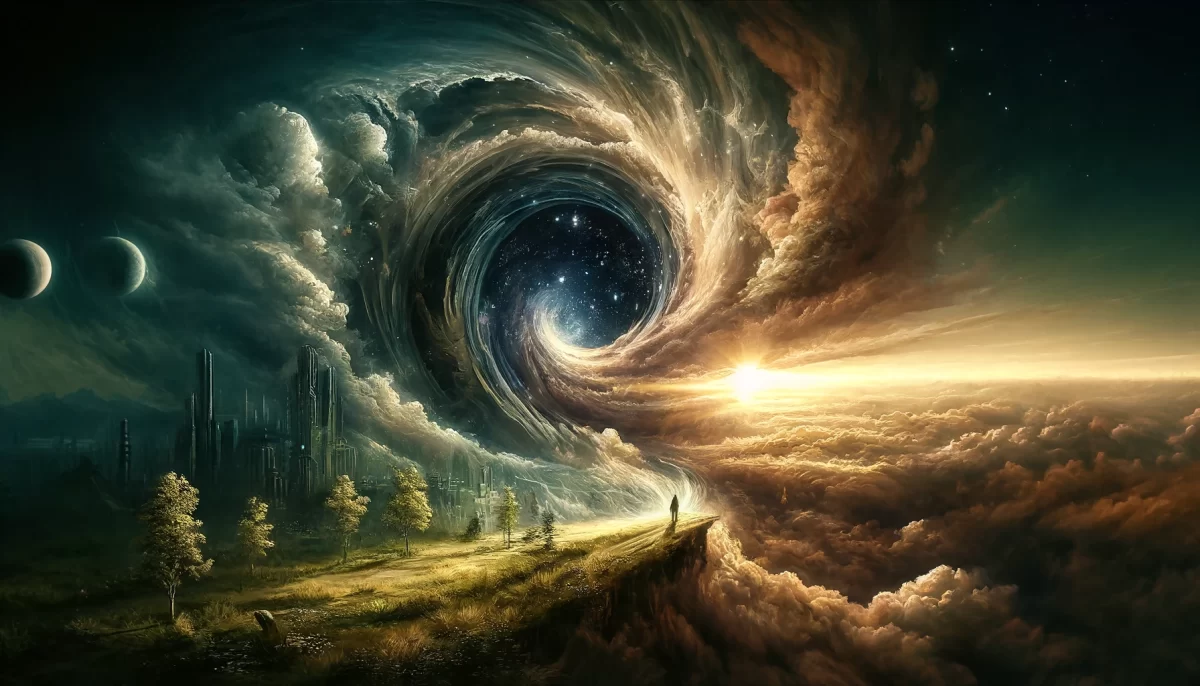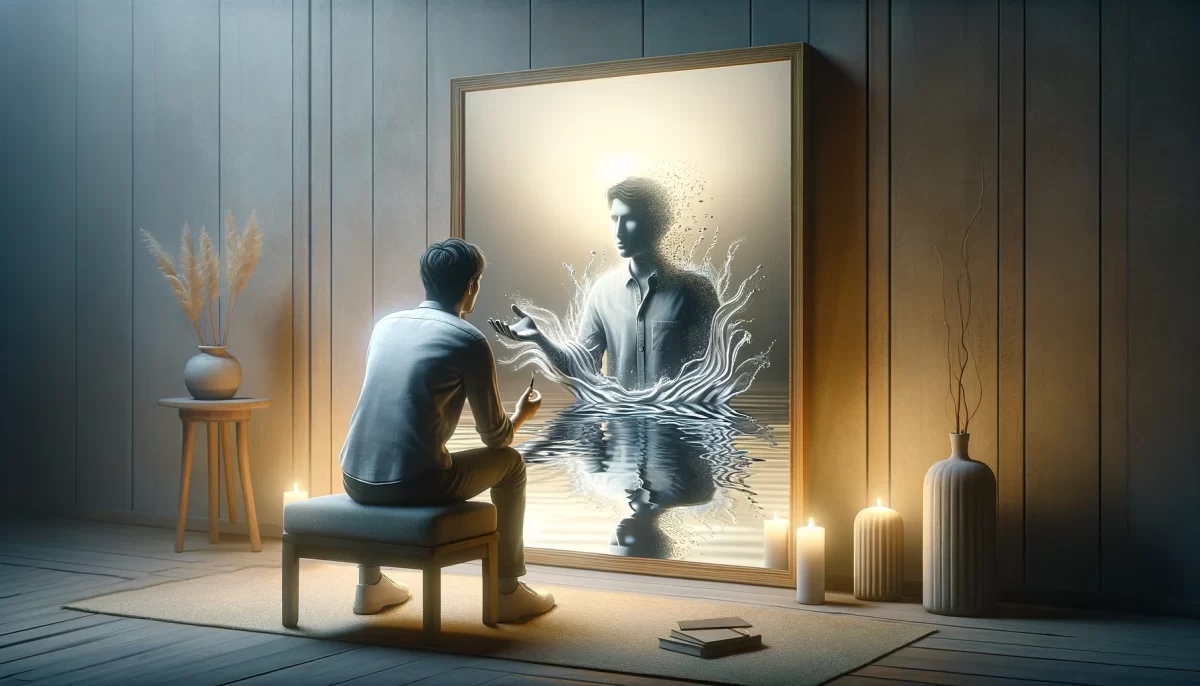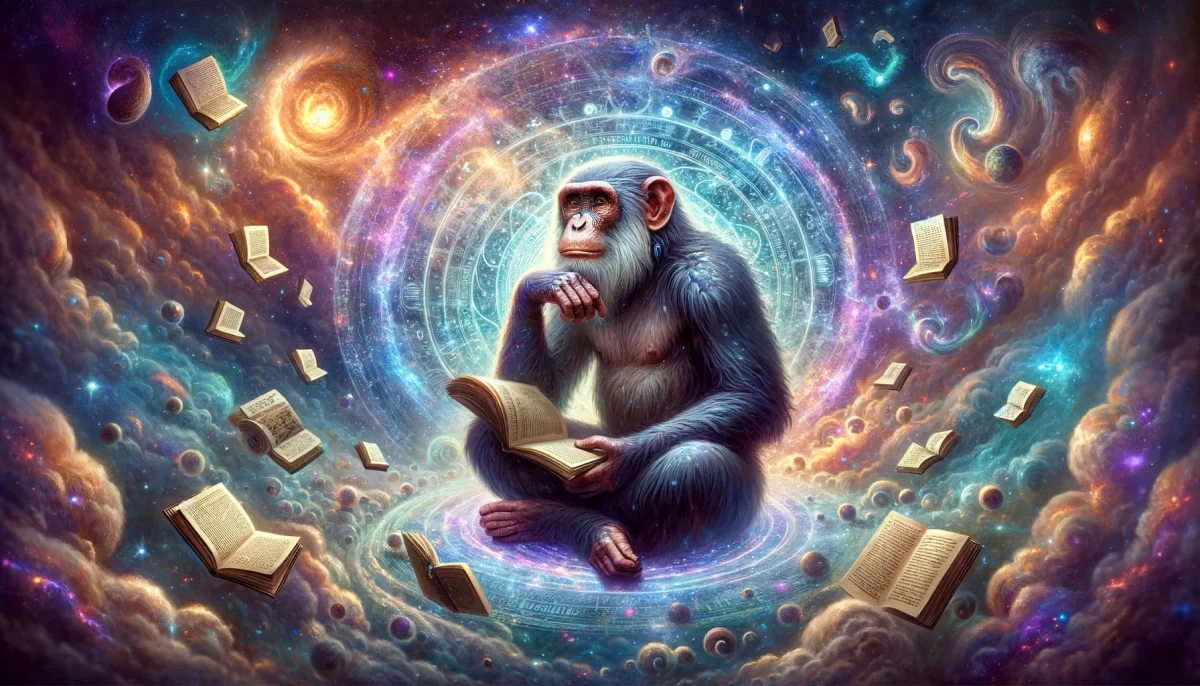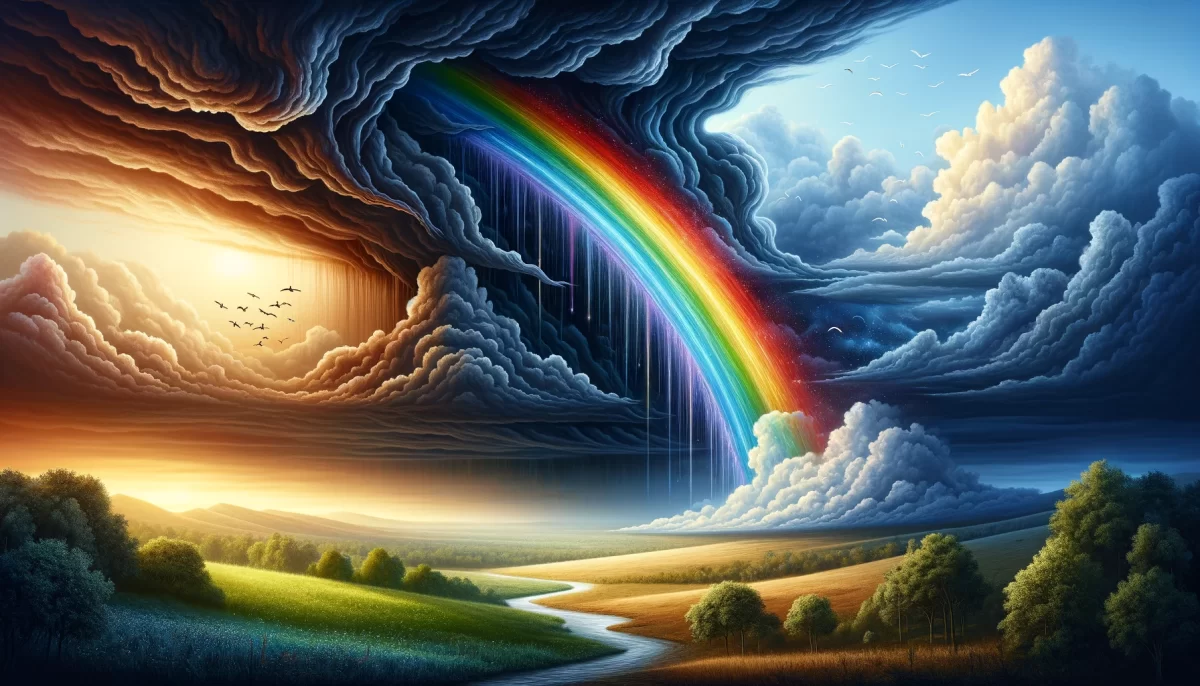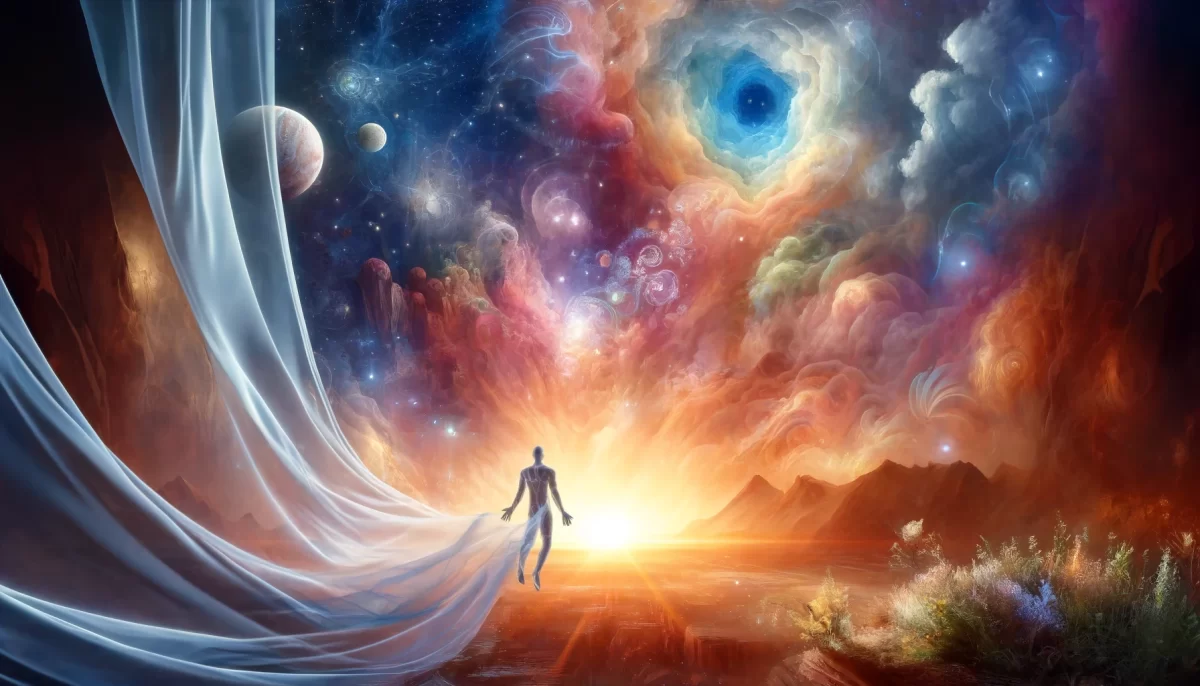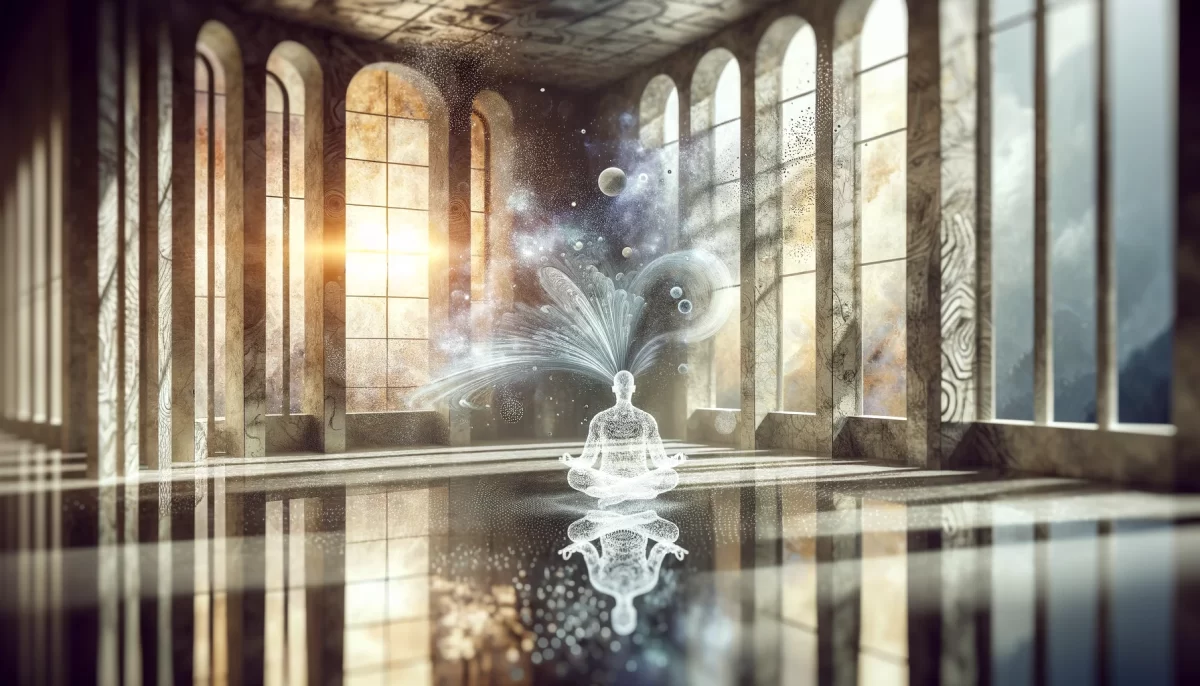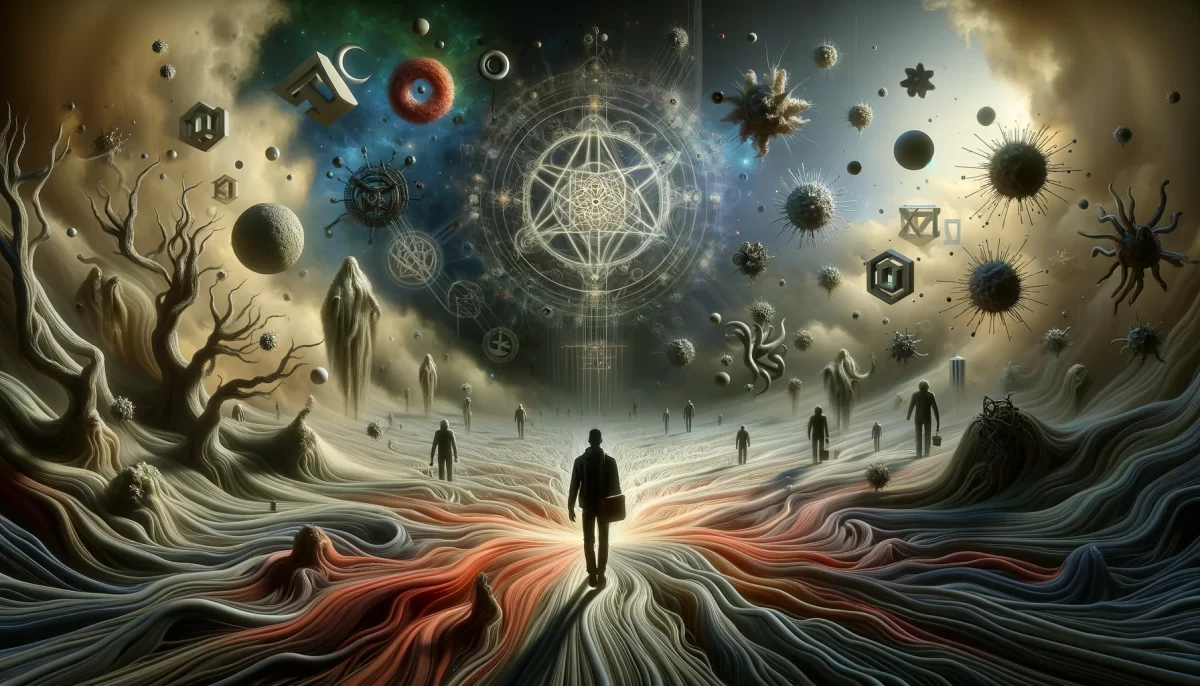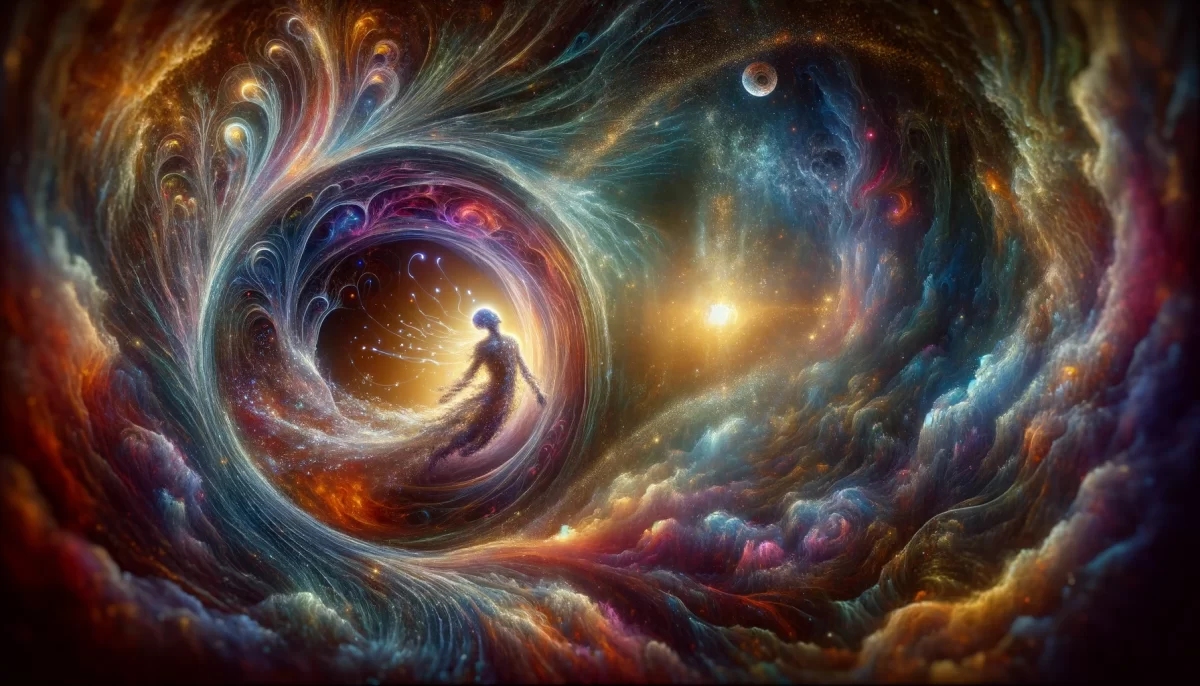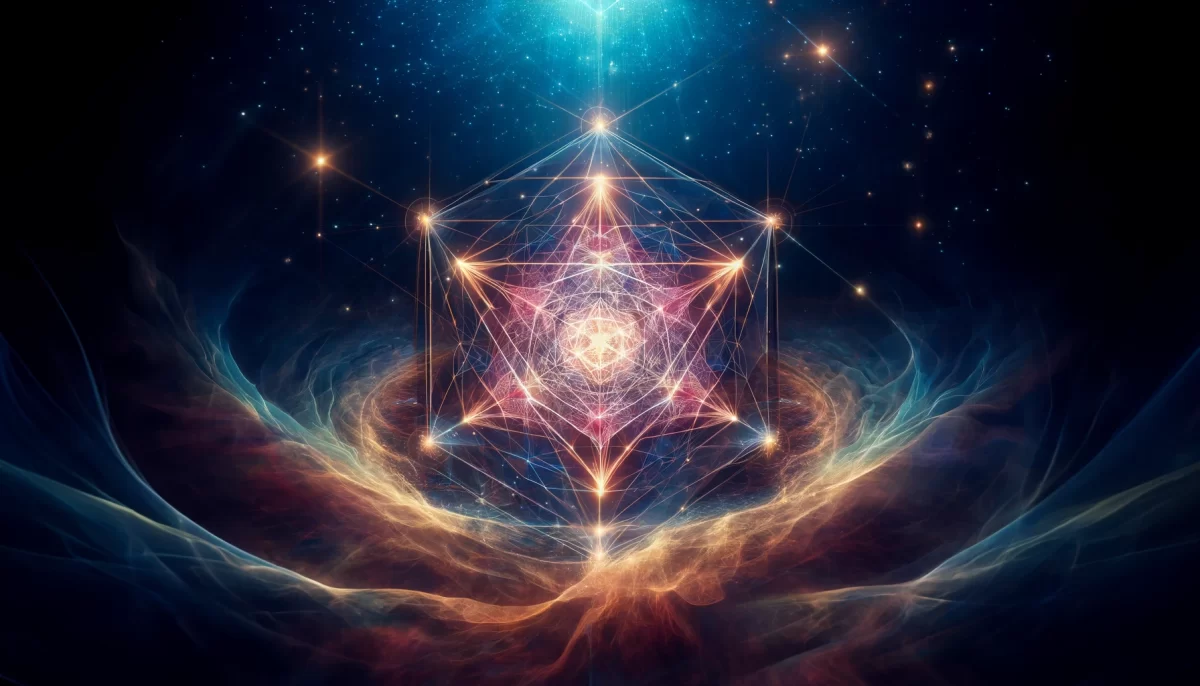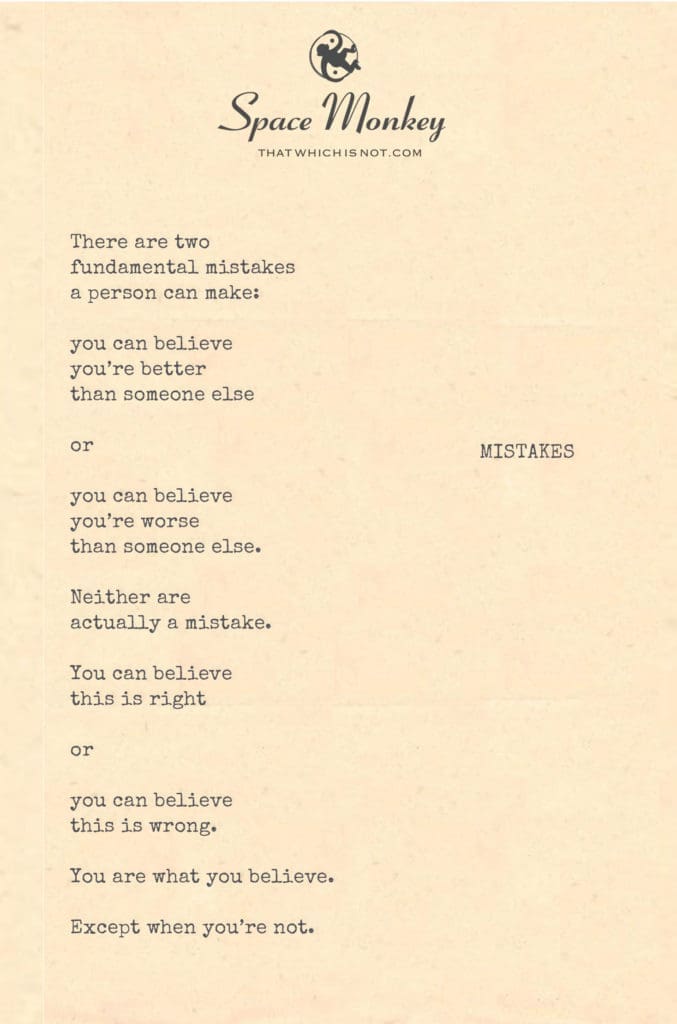
And then we are still perfect.
There are two
fundamental mistakes
a person can make:
you can believe
you’re better
than someone else
or
you can believe
you’re worse
than someone else.
Neither are
actually a mistake.
You can believe
this is right
or
you can believe
|this wrong.
You are what you believe.
Except when you’re not.
Trail Wood,
3/3
The Illusion of Imperfection
In the mystical forest, where beliefs reflect deeper truths, we confront the paradox of perfection.
The journey of self-discovery often leads us to confront the dualities within ourselves, particularly the notions of superiority and inferiority. These perceptions, while seemingly at odds, stem from the same root—a misunderstanding of our inherent perfection.
Beyond the Mirror of Belief
The ornate mirror in the mystical forest serves as a powerful metaphor for the way we view ourselves and others. It reflects not just our physical form, but the myriad beliefs and judgments we hold. Yet, beyond the surface of this reflection lies a deeper truth: that our essence remains untainted by these transient beliefs.
The Perfection of Being
The concept that we are perfect until we imagine otherwise suggests that our perceived flaws and mistakes are merely constructions of the mind. By recognizing this, we can see that what we often label as mistakes are opportunities for growth, signposts on the path to understanding our true nature.
Summary
The realization that neither feeling superior nor inferior to others constitutes a real mistake is liberating. It underscores the fluidity of our beliefs and the constant possibility for transformation. Ultimately, we are reminded that we are more than our beliefs, more than the sum of our perceived imperfections, always perfect in the essence of our being.
Glossarium
Self-Perception: The way in which one views and evaluates oneself, often influenced by societal standards and personal experiences.
Inherent Perfection: The concept that all beings possess an intrinsic value and completeness, unaffected by external judgments or self-imposed beliefs.
Duality of Belief: The existence of opposing beliefs within an individual, reflecting the complex nature of human thought and perception.
“The only true wisdom is in knowing you know nothing.” – Socrates
In the forest of reflection, where truths are unveiled,
two souls stand, their beliefs assailed.
One sees greatness, the other, lack,
but beyond the mirror, there’s no turning back.
For in this realm, where shadows play,
the illusion of mistakes fades away.
We are more, much more than we believe,
in the dance of perfection, we weave.
So let the mirror reflect, let it show,
the spectrum of belief, the inner glow.
For beyond the veil of right and wrong,
in the heart of being, we are strong.


